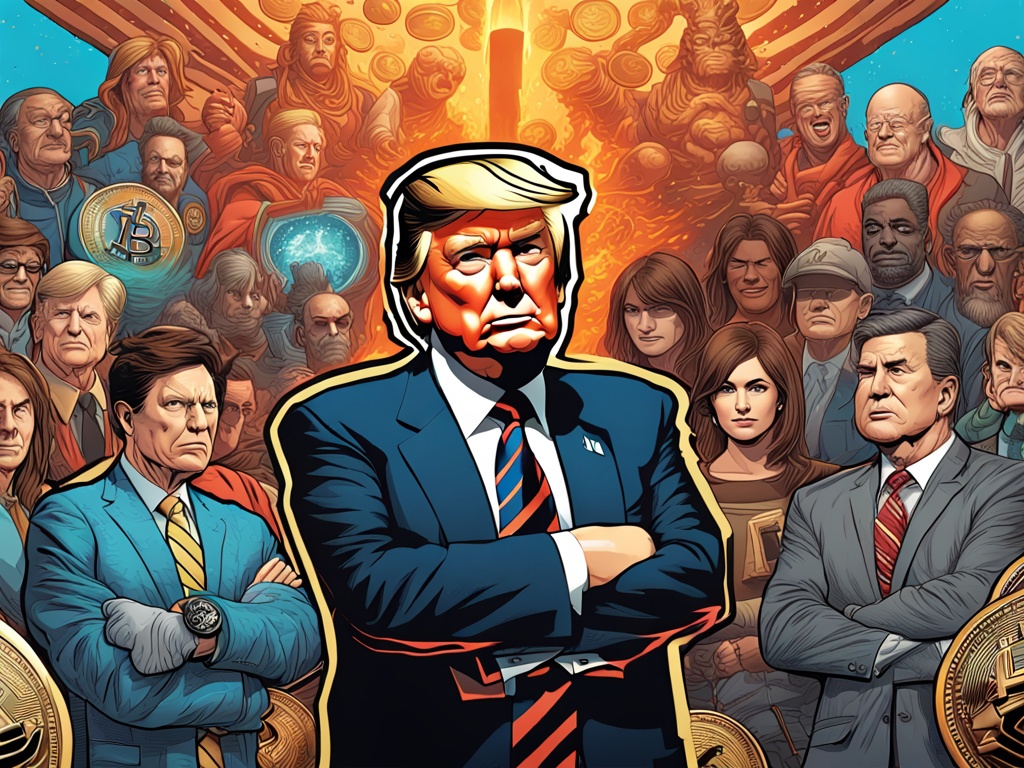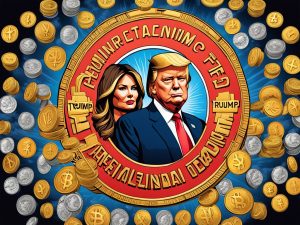Are Crypto Firms Under Siege? Unpacking a Political Probe
Hey there! So, picture this: you’re having a coffee chat with a buddy about crypto, and suddenly the conversation shifts to some serious allegations involving the U.S. government and its potential interference in the crypto sector. Yup, it’s a wild world out there in crypto land, and trust me, it’s got everyone’s attention. Let’s dive into what’s really going on and how it could impact your investments.
Key Takeaways:
-
House Investigation Launched: The U.S. House of Representatives is probing whether top crypto firms were ‘debanked’ during the Biden administration.
-
Political Pressure Allegations: Key industry leaders allege that there was pressure from the Biden administration aimed at restricting banking services to the crypto sector.
-
Operation Choke Point 2.0: This controversial initiative is gaining traction, with accusations about a government-led coordinated effort to stifle the crypto industry.
-
Crypto Leaders Responding: Prominent figures in the crypto space express a willingness to cooperate with the investigation to ensure fair treatment.
- Regulatory Shake-Up: Recent political changes, including Trump’s executive order, suggest a shift in government strategy towards crypto.
Let’s break this down. Recently, we learned that the U.S. House Oversight Committee, headed by Rep. James Comer, is going full Sherlock Holmes on the allegations that the Biden administration might have pressured banks to cut off services to crypto firms based solely on their industry. That’s a big deal because access to traditional banking is crucial for these companies to operate smoothly. Can you imagine running a business without a bank account? Crazy, right?
The Debanking Dilemma
What’s been put under the spotlight is this purported “debanking” practice. Many prominent figures in the crypto space have voiced concerns that banks were, let’s say, coerced into denying services to them, considerably hurting their operations. This whole narrative resonates with stories of censorship and economic isolation. As an optimistic millennial, I’ve always believed in innovation, particularly in blockchain’s transformative potential. But then hearing something like this makes me wonder about the lengths to which some might go to stifle progress.
According to industry veterans, over 30 crypto founders found themselves suddenly unable to transact with banks. I mean, losing banking access overnight is not just inconvenient; it can throw an entire business plan out the window. Kristin Smith, who’s leading the charge at the Blockchain Association, summed it up perfectly: "Lawful crypto organizations need bank accounts to operate." It’s like trying to drive your car without gas!
What’s Next?
Now, here’s where it gets interesting—this House Committee is inviting these execs to help clarify what exactly went down. The key question is whether this ‘debanking’ is a purely corporate decision by banks or if it stemmed from government pressure.
And our favorite buzzword recently, Operation Choke Point 2.0? It has some serious implications attached to it. Allegedly, it reflects how governmental entities can influence banks to choke off legitimate businesses that they perceive to be too risky or politically unfavorable. If you’re thinking about investing in crypto, it’s essential to understand how shifts in regulatory stances could impact the entire ecosystem.
The Political Rollercoaster
Now here’s a spicy part—since Trump’s return to the White House, we’ve seen the landscape of crypto regulation shift dramatically. His signing of an executive order aimed at creating a federal crypto reserve could rejuvenate the industry, potentially marking a turning point in government attitudes toward cryptocurrencies. And just hours after that, the SEC rescinded a rule (SAB 121) that discouraged U.S. banks from holding cryptocurrencies. What does that mean for crypto? It signals a newly opened door, paving the way for banks to engage more with the sector, which is a big step in the right direction.
Imagine the impact of more banks willing to work with crypto firms! It could create a ripple effect leading to greater legitimization and stability in the market. But the road ahead is rocky, and navigating political and regulatory changes will be crucial for any investor.
Actionable Insights for Potential Investors
Alright, let’s get down to brass tacks. If you’re considering dipping your toes into crypto, here are a few practical tips to keep in mind:
-
Stay Informed: Follow the news closely. These regulatory probes and executive orders can significantly impact the market.
-
Diversity is Key: Don’t put all your eggs in one basket. The crypto space is highly volatile, so diversifying your investments can mitigate risks.
-
Engage with Community Resources: Join forums or groups where crypto enthusiasts share insights. Knowledge is power, especially in a rapidly changing environment.
-
Consider Long-Term Trends: While short-term dips can be heartbreaking, look for long-term patterns. The crypto market has seen its fair share of volatility but has a potential for recovery and growth over time—historically speaking!
- Consult Experts: If you feel overwhelmed, don’t hesitate to seek advice from financial advisors who specialize in crypto. Having an expert overview can help you make informed decisions.
So, as you think about investing, consider this: Is the potential for innovation worth navigating the stormy political waters? With change comes opportunity, and the fast-paced world of crypto can lead to astonishing breakthroughs—and yes, some serious risks too. It begs the question: In the quest for economic freedom and innovation, how much are you willing to risk?




 By
By
 By
By

 By
By
 By
By